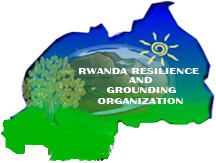At the recent NIH Summer Conference organized by the Department of Interdisciplinary Studies at Loma Linda University, my colleagues and I presented two important research posters. These presentations focused on the long-term effects of the Community Resiliency Model (CRM) on genocide survivors and perpetrators in Rwanda, showcasing the potential of CRM to heal trauma, foster forgiveness, and promote mental well-being.
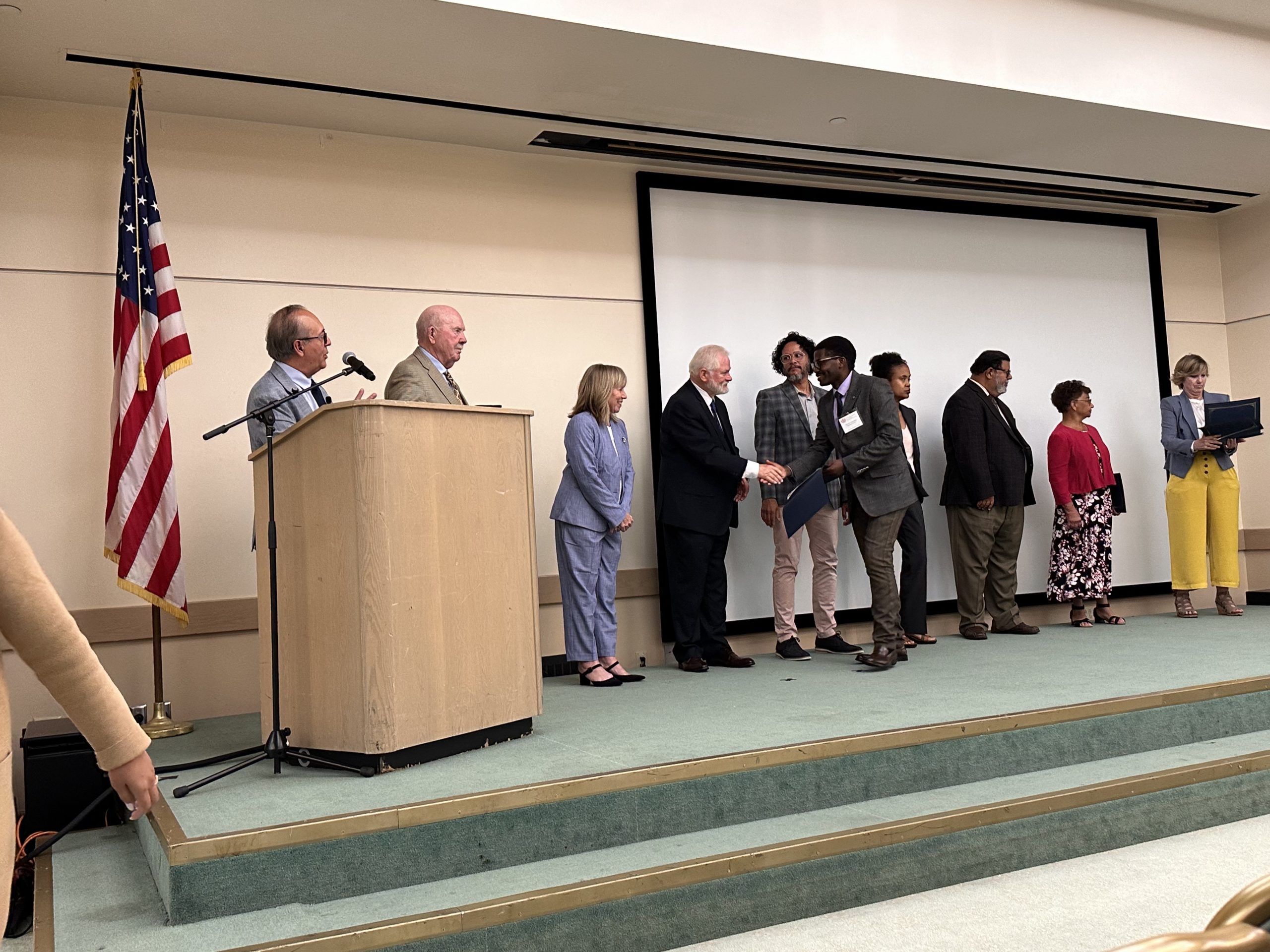
We continue our activities because of your donations; Man hands make the right work.” Donate to RRGO Donate “
Poster 1: The Predictability and Changing Overtime of Psychosocial Problems: Community Resiliency Model Intervention on Survivors and Perpetrators in Rwanda
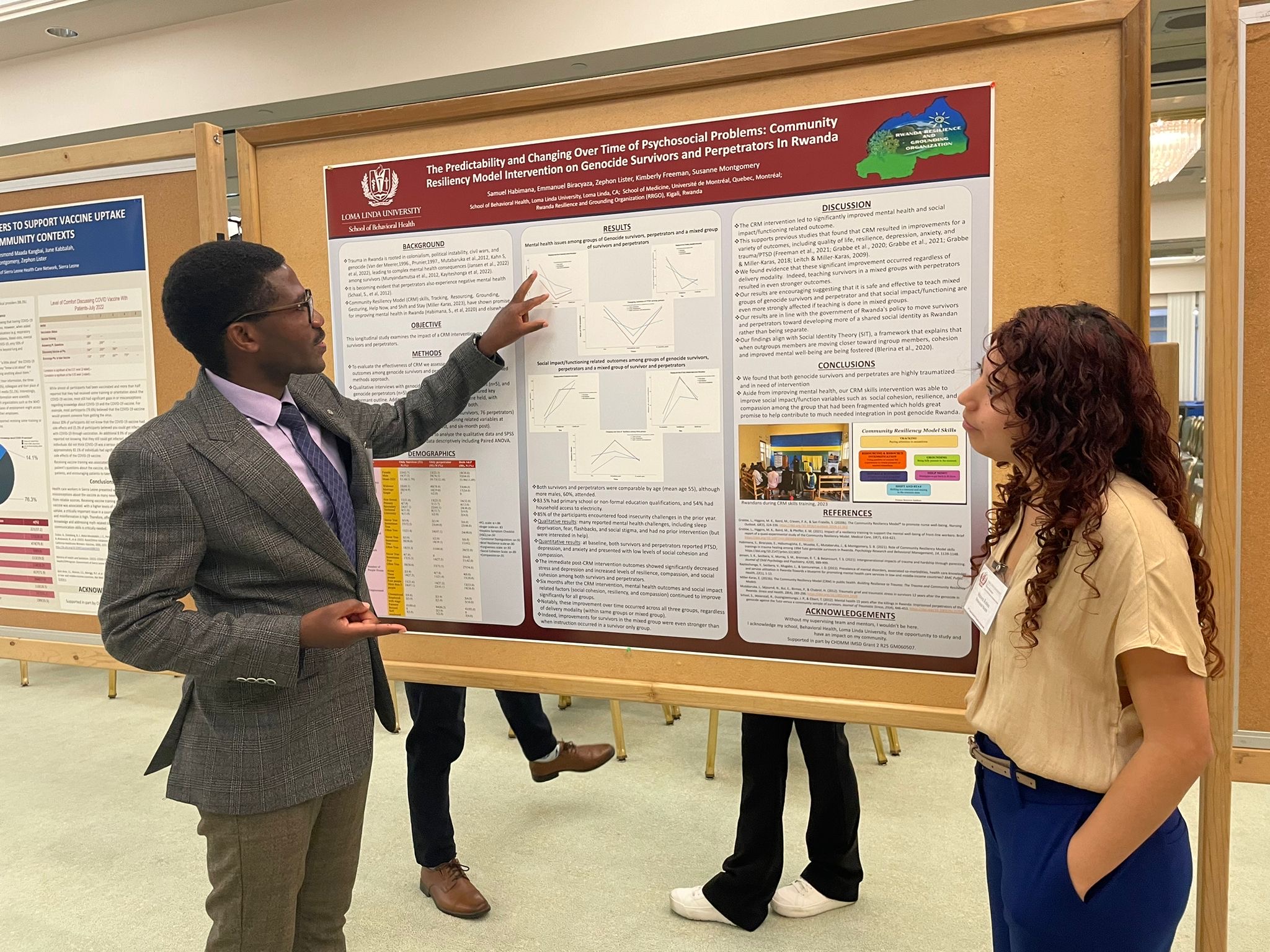
In this presentation, I shared the findings of a study on the psychological impact of the Community Resiliency Model (CRM) among Rwandan genocide survivors and perpetrators. The results were significant, showing that a six-month CRM intervention led to substantial improvements in mental health. Specifically, the study found that CRM significantly reduced symptoms of depression, post-traumatic stress disorder (PTSD), and anger among participants.
These findings demonstrate CRM’s effectiveness in addressing mental health challenges in post-genocide communities. Moreover, the study revealed that CRM has the potential to open the “forgiveness window,” a metaphorical space where increased social cohesion, resilience, and forgiveness can emerge between survivors and perpetrators. This shift is critical in fostering a culture of healing and reconciliation in Rwanda, where the scars of the 1994 genocide continue to impact both survivors and perpetrators.
Poster 2: “If You Treat Your Anger, What Happens to Forgiveness? Dynamics of Healing Together from Opposing Sides of the Genocide Conflict in Rwanda”
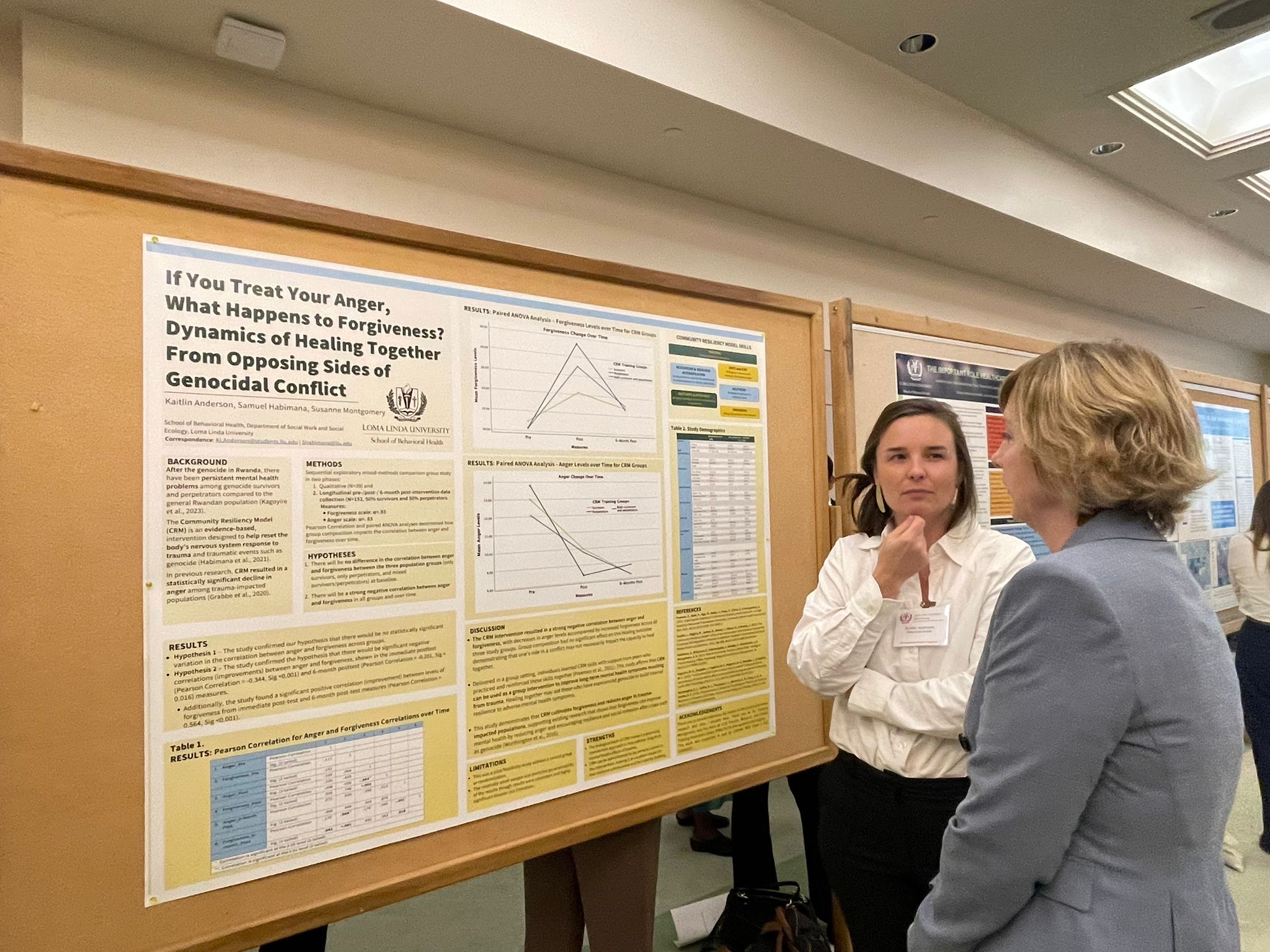
In my second poster presentation, we explored the relationship between managing anger and the process of forgiveness. The study revealed that delivering CRM in group settings allows individuals to learn CRM skills with peer support, reinforcing the practices together. This communal approach not only strengthens individual mental health but also fosters a collective healing experience.
The research highlights that CRM is a powerful group intervention tool capable of reducing anger, a key predictor of forgiveness. As participants learn to regulate their nervous systems and manage their trauma through CRM, they experience a reduction in anger, which leads to an increase in their capacity for forgiveness. This dynamic suggests that healing from trauma and building resilience can help former adversaries move toward reconciliation and coexistence.
Insights on Forgiveness and Healing in Rwanda
Both studies underline the importance of forgiveness as a process that requires internal, psychological work. While forgiveness is often seen as a deeply personal journey, CRM introduces a biologically based intervention that teaches individuals how to regulate their nervous systems, maintain mental well-being, and develop coping strategies. These skills are critical in helping survivors and perpetrators alike sustain a sense of well-being and emotional balance, which can, in turn, trigger forgiveness and foster harmonious living between opposing sides.
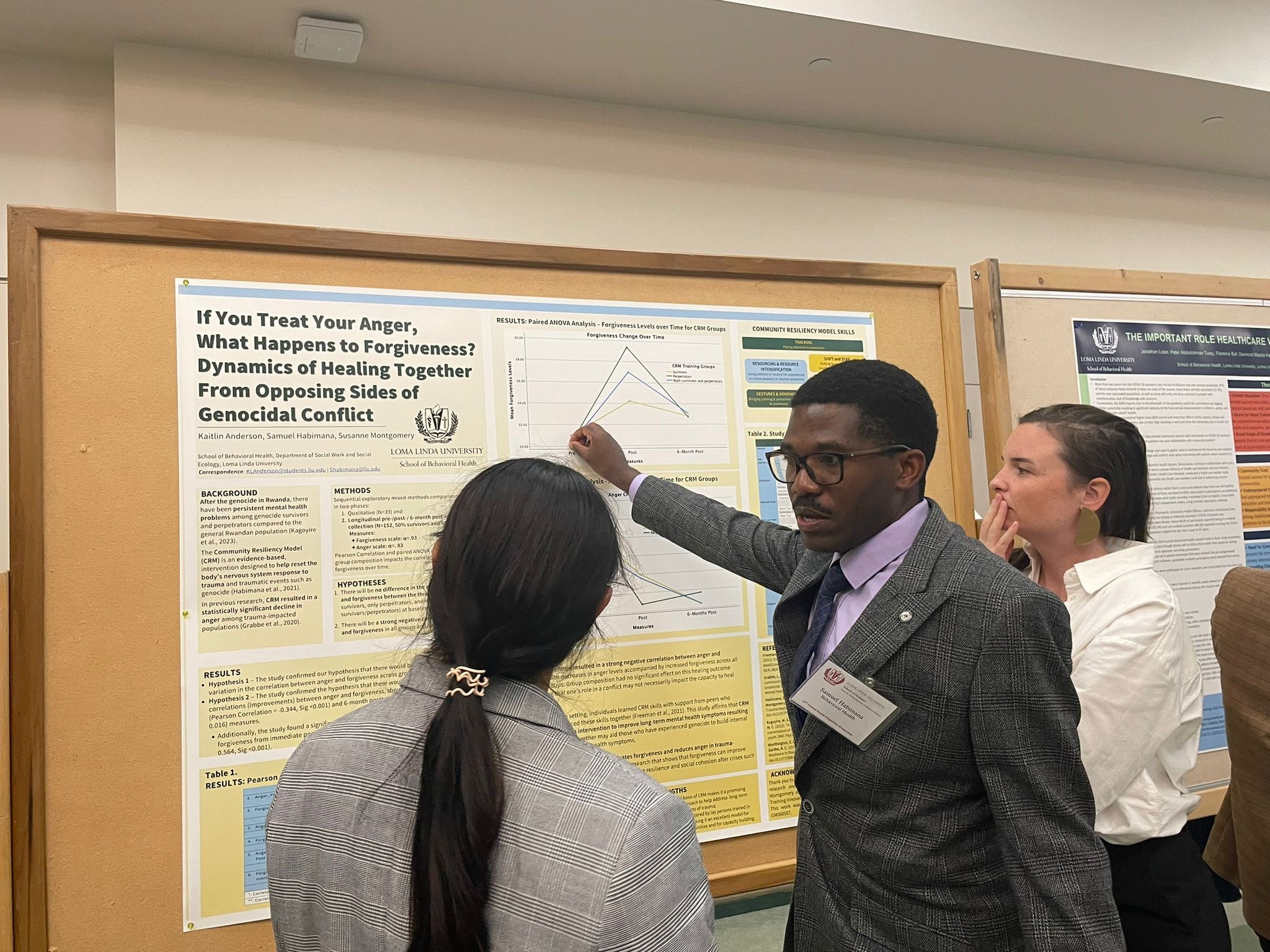
CRM’s role in regulating the nervous system is crucial in this process. By teaching participants how to stay longer in states of well-being(Resilienze zone:Umutuzo) and equipping them with practical strategies to cope with mental health challenges, CRM has shown great potential to promote long-lasting forgiveness and social cohesion in post-genocide Rwanda.
Conclusion
The presentations at Loma Linda University’s NIH Summer Conference highlighted the profound impact of the Community Resiliency Model on mental health and reconciliation efforts in Rwanda. By addressing trauma, reducing anger, and fostering forgiveness, CRM provides a pathway for survivors and perpetrators of the 1994 genocide to heal together. This research supports the notion that mental health interventions like CRM can be transformative in promoting peace, resilience, and unity in post-conflict societies. These findings open doors for future collaborations and broader applications of CRM in other communities affected by trauma and conflict worldwide.
